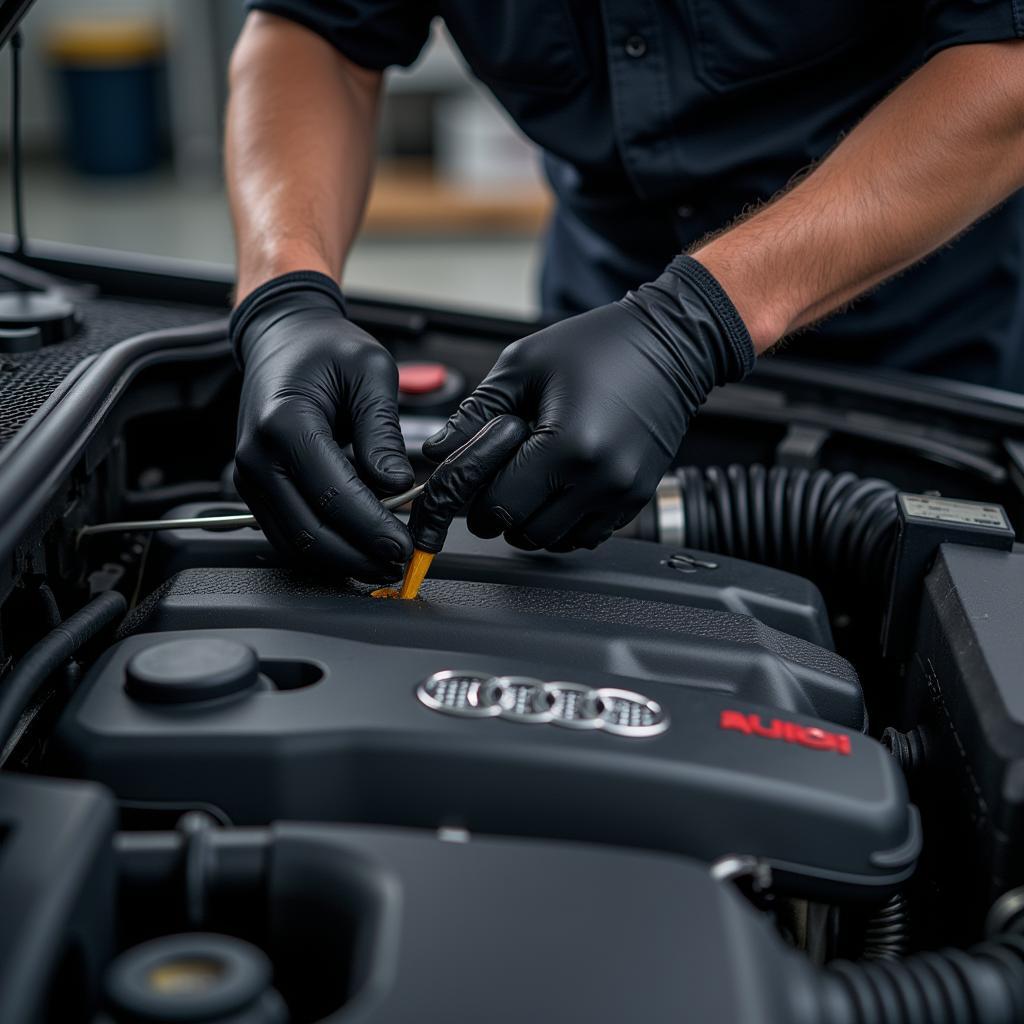How to Get a Service Contract for New Cars: A Comprehensive Guide
Purchasing a new car is an exciting experience, but it’s essential to protect your investment with a reliable service contract. A service contract, also known as an extended warranty, provides coverage for unexpected repairs beyond the manufacturer’s warranty period. This guide will walk you through everything you need to know about service contracts for new cars, empowering you to make an informed decision.
Understanding Service Contracts for New Cars
Before delving into the specifics of obtaining a service contract, it’s crucial to understand what they are and how they differ from manufacturer warranties.
What is a Service Contract?
A service contract is a contract between you and a provider (typically a dealership or a third-party company) that covers the cost of specific repairs for a predetermined period or mileage. Essentially, it acts as an extension of your manufacturer’s warranty, providing peace of mind and protection against unforeseen repair expenses.
Service Contract vs. Manufacturer Warranty
While both provide repair coverage, there are key differences between a service contract and a manufacturer’s warranty:
- Coverage: Manufacturer warranties typically cover defects in materials and workmanship for a specific period, while service contracts offer more comprehensive coverage options for a wider range of components.
- Cost: Manufacturer warranties are included in the purchase price of a new car, while service contracts are an additional expense.
- Provider: Manufacturer warranties are backed by the car manufacturer, while service contracts can be purchased from dealerships or third-party providers.
Why You Might Need a Service Contract for Your New Car
While new cars are generally reliable, unexpected repairs can still occur, and the costs can be substantial. A service contract can provide financial protection and peace of mind, knowing that you won’t be burdened with hefty repair bills.
Here are some compelling reasons why you might consider a service contract:
- Extended Coverage: Service contracts offer coverage beyond the manufacturer’s warranty period, protecting you from expensive repairs as your car ages.
- Comprehensive Protection: Choose from various coverage levels to tailor the protection to your specific needs and budget.
- Peace of Mind: Enjoy peace of mind knowing that you’re financially protected against unexpected repair costs.
Types of Service Contracts for New Cars
Service contracts come in various forms, each offering different levels of coverage and benefits. The most common types include:
- Bumper-to-Bumper Warranty: The most comprehensive option, covering almost every component of your car, similar to the original manufacturer’s warranty.
- Powertrain Warranty: Covers the essential components of your car’s powertrain, such as the engine, transmission, and drivetrain.
- Wrap-Around Warranty: Extends the coverage of your existing manufacturer’s warranty, providing additional benefits and longer coverage terms.
- Exclusionary Warranty: Covers a wide range of components, but excludes specific items listed in the contract.
Factors to Consider When Choosing a Service Contract
Selecting the right service contract requires careful consideration of your driving habits, budget, and the specific needs of your vehicle. Here are key factors to keep in mind:
- Coverage: Thoroughly review the contract terms to understand what components are covered and excluded.
- Deductible: Consider the deductible amount you’re comfortable paying per repair and how it impacts the overall cost of the contract.
- Term and Mileage: Choose a contract term and mileage limit that aligns with your anticipated driving needs.
- Provider Reputation: Research the reputation of the provider, checking customer reviews and financial stability.
- Cost: Compare quotes from multiple providers to ensure you’re getting a competitive price.
Negotiating a Service Contract
While service contracts are often presented as a take-it-or-leave-it proposition, there is room for negotiation. Here are some tips for getting the best deal:
- Shop Around: Obtain quotes from multiple dealerships and third-party providers to compare coverage and pricing.
- Don’t Be Afraid to Negotiate: Negotiate the price, deductible, and coverage terms to secure the most favorable agreement.
- Consider Incentives: Inquire about any available incentives or discounts, such as loyalty programs or special promotions.
- Read the Fine Print: Carefully review the contract terms, including exclusions, limitations, and cancellation policies.
Common Exclusions and Limitations
Service contracts often include exclusions and limitations, so it’s crucial to understand what’s not covered. Common exclusions include:
- Wear and Tear Items: Routine maintenance items like brake pads, tires, and wiper blades are typically not covered.
- Pre-Existing Conditions: Repairs for issues that existed before purchasing the contract are usually excluded.
- Damage from Accidents or Negligence: Damage resulting from accidents, misuse, or lack of maintenance is generally not covered.
 Understanding Service Contract Exclusions
Understanding Service Contract Exclusions
Tips for Maintaining Your Service Contract
To ensure the validity of your service contract, it’s essential to adhere to the maintenance requirements outlined in the agreement.
- Follow Scheduled Maintenance: Adhere to the manufacturer’s recommended maintenance schedule and keep detailed records of all services performed.
- Use Authorized Repair Facilities: Utilize repair facilities authorized by the service contract provider to avoid potential coverage issues.
- Report Issues Promptly: Report any issues or malfunctions to the provider promptly to initiate the repair process.
Conclusion
A service contract for your new car can provide valuable financial protection and peace of mind. By understanding the different types of contracts, considering your individual needs, and negotiating a fair price, you can make an informed decision that safeguards your investment and provides peace of mind for miles to come.
FAQs about Service Contracts for New Cars
1. Can I purchase a service contract after I buy my car?
Yes, you can often purchase a service contract within a certain timeframe after purchasing your new car, but it’s generally more advantageous to do so at the time of purchase.
2. Are service contracts transferable?
Some service contracts are transferable to subsequent owners, which can increase the resale value of your vehicle.
3. What happens to my service contract if the provider goes out of business?
Most reputable providers have safeguards in place, such as insurance policies or backup providers, to ensure coverage if they cease operations.
4. Can I cancel my service contract?
Yes, most service contracts have cancellation provisions, but there may be fees or penalties involved.
5. Is it worth it to get a service contract for a reliable car brand?
Even reliable car brands can experience unexpected issues, and a service contract can provide peace of mind regardless of the brand’s reputation.
6. What if I have a dispute with the service contract provider?
Most contracts outline a dispute resolution process, and you may also have recourse through consumer protection agencies.
7. Can I use any repair shop with a service contract?
Service contracts typically require you to use authorized repair facilities, so it’s essential to verify this before initiating any repairs.
Do you have other questions about car service contracts?
Check out these related articles for more information:
Need personalized assistance? Don’t hesitate to reach out to our team of car service experts. Contact us via WhatsApp: +1(641)206-8880, Email: [email protected]. We’re available 24/7 to address your concerns and provide guidance.

